BIOLOGY MAJOR
at Meredith College
As a biology major at Meredith, you’ll experience personalized advising, numerous opportunities for research with faculty, and multiple student organizations that provide ways to be involved outside the classroom.
Our Undergraduate Biology Program
Meredith’s biology curriculum is designed to meet the needs of students interested in the wide variety of career areas related to biological sciences, from medical to environmental to teacher training. Small class sizes as well as the opportunity for one-on-one work with faculty on research projects provides a personalized learning environment in which you will get to know faculty and your peers. The biology program emphasizes professional development, making our graduates sought after in STEM fields.
The biology program provides students with in-depth exposure to many areas of biological sciences, while fostering skills in applying natural science methodologies through investigative work and enhancing creative learning and thinking. Through the program, students sharpen their knowledge of biological principles and concepts and are able to apply that knowledge to laboratory and field experiments.
Students earning a Bachelor of Arts in biology are required to complete 46-47 credit hours, which include 32 hours of biology courses, eight hours of physical science courses and six to seven hours of mathematics courses.
Undergraduate course catalogue »
Curriculum requirements and course descriptions are subject to changes with each catalogue.
Students earning a Bachelor of Science in biology are required to complete 59 credit hours, which include 36 hours of biology, chemistry, and math courses and 23 credit hours of required electives.
Undergraduate course catalogue »
Curriculum requirements and course descriptions are subject to changes with each catalogue.
Students minoring in biology are required to complete 20 credit hours, including Principles in Biology and approved electives.
Undergraduate course catalogue »
Curriculum requirements and course descriptions are subject to changes with each catalogue.
Students earning a degree in biology are eligible to seek North Carolina teacher licensure to teach middle grades (6-9) science or comprehensive science for secondary education (9-12).
Why Study Biology at Meredith?
- Faculty and staff will get to know you as an individual and help you build on your strengths as you explore and prepare for a career in biology.
- Our location near Research Triangle and strong faculty connections to industry and research partners lead to exceptional research, internship, and employment opportunities.
- As a women’s college, Meredith has unique programming to help students gain the skills and knowledge needed to succeed in STEM fields.
- Our students are accepted into top graduate and professional programs at school such as Wake Forest University Medical School, NC State College of Veterinary Medicine, Cornell University, East Carolina University, UNC-Chapel Hill, and more.
- Meredith biology graduates are employed in a variety of fields including medical research, biotechnology, healthcare, forensic science, medical illustration, and many more.
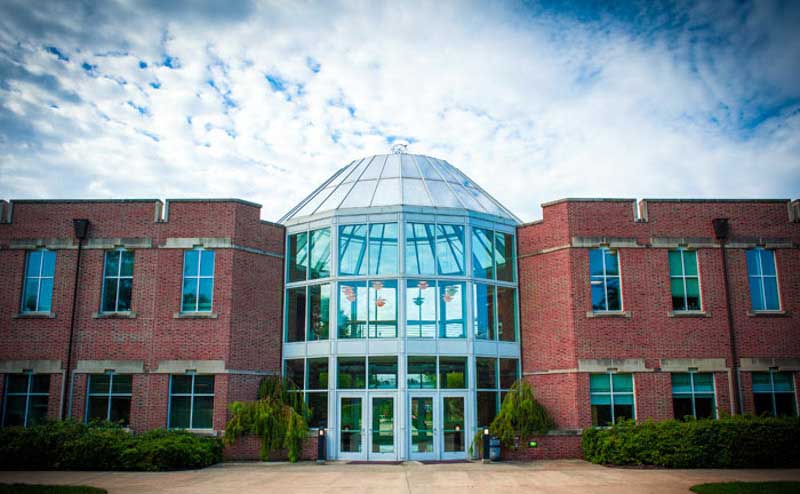
What You Can Do With a Biology Degree
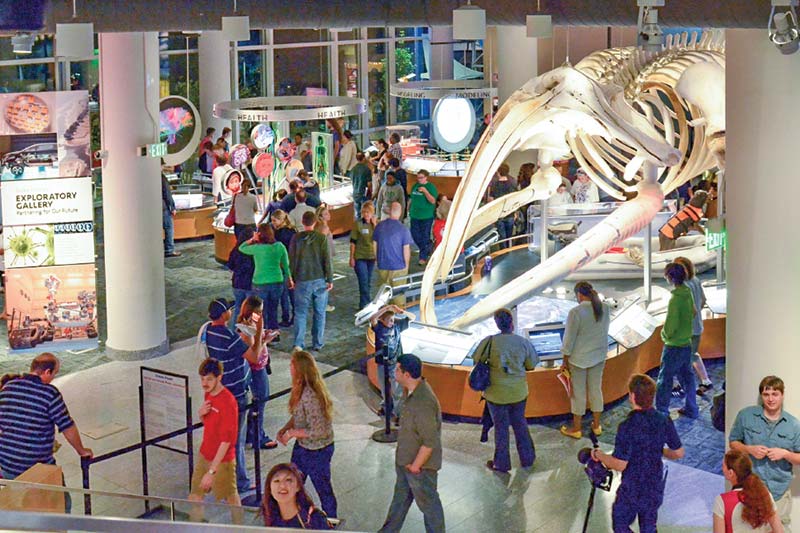
Internships and Careers in Biology
Meredith’s location in the Research Triangle provides many internship opportunities for biology students.
- Students have recently completed internships at the State Bureau of Investigation, City/County Bureau of Identification, GlaxoSmithKline, and Novartis.
- Students interested in careers in healthcare are guided through their search for shadowing opportunities and volunteer opportunities. Recent students have spent time in physical therapy practices, at Zaytoun Orthodontics and job-shadowed at Raleigh Foot and Ankle Center.
A biology major prepares students for a wide array of career paths in biology as well as graduate study. Raleigh has been ranked #5 in the nation for the life science industry, giving our students and graduates an edge in launching and maintaining successful careers.
Professional Programs
Medical School
Brody School of Medicine at East Carolina University
Edward Via VA College of Osteopathic Medicine
Podiatric Medicine at Midwestern University
VCOM – South Carolina
Wake Forest University Medical School
Yale Medical School
Dental School
Ohio State University College of Dentistry
Veterinary School
North Carolina State University College of Veterinary Medicine
Law School
North Carolina Central University School of Law
Pharmacy School
Campbell University
Medical University of South Carolina
University of North Carolina-Chapel Hill
University of Kentucky
Nursing School
Duke University
East Carolina University
Georgia Southern University
University of North Carolina-Chapel Hill
Physical Therapy Programs
East Carolina University
Touro College
Physicians Assistant Programs
Duke University
East Carolina University
Methodist University
Ph.D. Programs
Food Science – Cornell University
Biomedical Engineering – University of North Carolina-Chapel Hill
Biochemistry – Wake Forest University
Chemistry – North Carolina State University
Education – University of Tennessee
Microbiology – North Carolina State University
Master of Science Programs
Biology – East Carolina University
Food Science – North Carolina State University
Genetics – North Carolina State University
Microbiology – Virginia Commonwealth University, North Carolina State University
Molecular Diagnostics – University of North Carolina-Chapel Hill
Zoology – North Carolina State University
Ecology – Virginia Commonwealth University
Masters in Clinical Research Program
Campbell University
Masters of Public Health Programs
East Carolina University
Eastern Virginia Medical School
London School of Hygiene and Tropical Medicine
University of North Carolina-Chapel Hill
Professional Masters in Microbial Biotechnology Programs
North Carolina State University
Master of Education
Meredith College
Careers
- Research Technician, Bayer CropScience
- Science Education Center, Museum of Life and Science
- Registered Nurse, Duke University Medical Center, Baptist Hospital
- Cytogenetics Technician, LabCorp of America
- Comprehensive Science Teacher 9-12, Apex High School
- Molecular Genetics Lab Tech, LabCorp of America
- Animal Care Tech and Customer Service Tech, Care First Animal Hospitals
- Chiropractic Assistant, Triangle Spine Center
- EPA – Neurotoxicology Division
- Science Teacher 9-12, Wake County Public Schools
- Pharmacy Technician, Rite Aid
- Patient Services Coordinator, Biogen Idec
- Lab Technologist, American Red Cross
- Bulk Manufacturing Associate, Novartis
- MSPH Climate Change Epidemiologist, Occupational and Environmental Epidemiology Branch, Division of Public Health NC Dept of Health and Human Services
- Life Science and Anatomy & Physiology Teacher, Hampton Roads Academy
- Research Technician, Nicholas School for the Environment, Duke University
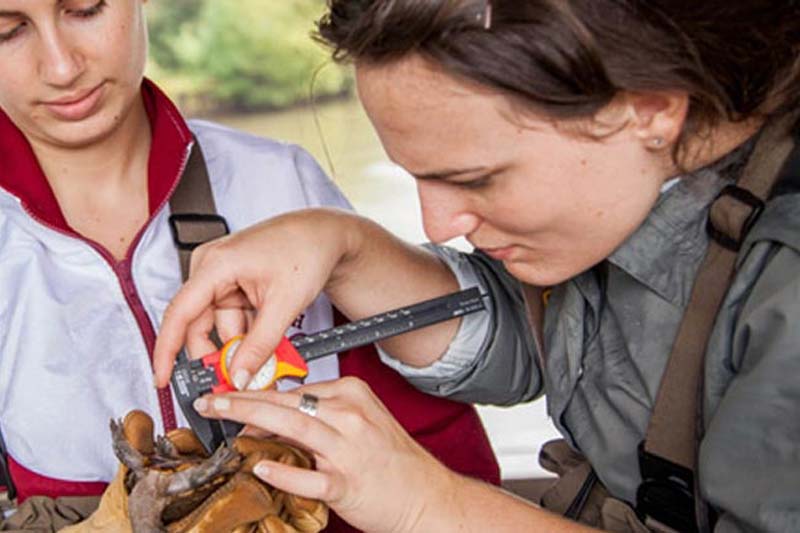
Biology Research
The biology program maintains a strong research program available to all students during their time at Meredith College. Biology students have frequently had the opportunity to conduct research in labs at Duke, UNC-Chapel Hill, and the Environmental Protection Agency (EPA). Students have presented their research at venues such as the North Carolina Academy of Science, Southeastern Association of Biology, State of North Carolina Undergraduate Research and Creativity Symposium, and the Ecological Society of America. Read examples of recent research presentations from our students.
- “Shell Morphology and DNA Sequencing of Disperse Populationsof Corbicula fluminea in North Carolina.”
- “Tissue Culture, Plant Regeneration, and DNA Extraction of Tylosema fassoglense.”
- “HIV protease inhibition abilities of Tylosema fassoglense.”
- “Tissue Culture and Plant Regeneration of Tylosema fassoglense and Tylosema exculentum.”
- “Extraction, Purification, and Isolation of Potential Protease Inhibitor from Root and Leaf of Tylosema fassoglensis.”
- “Wetland Sediment Microbial Community Composition Shifts in Response to Global Change.”
- “The Morphological Evolution of the Highly Specialized Aquatic Frogs Xenopus laevis.”
- “The Effect of Nicotine Use on Decision Making Behavior.”
- “Microbial Enzyme Activity in Response to Drought and Saltwater Intrusion in Wetland Soils.”
- “Cloning of katA (catalase) in Staphlococcus epidermidis.”
- “Fecal Coliform Monitoring of Meredith Pond.”
- “Conversion of Secondary Amines to Imines Using Common Organic Reagents.”
- “Cloning of the Restriction Enzyme Escherichia coli Restriction EndonucleaseI.”
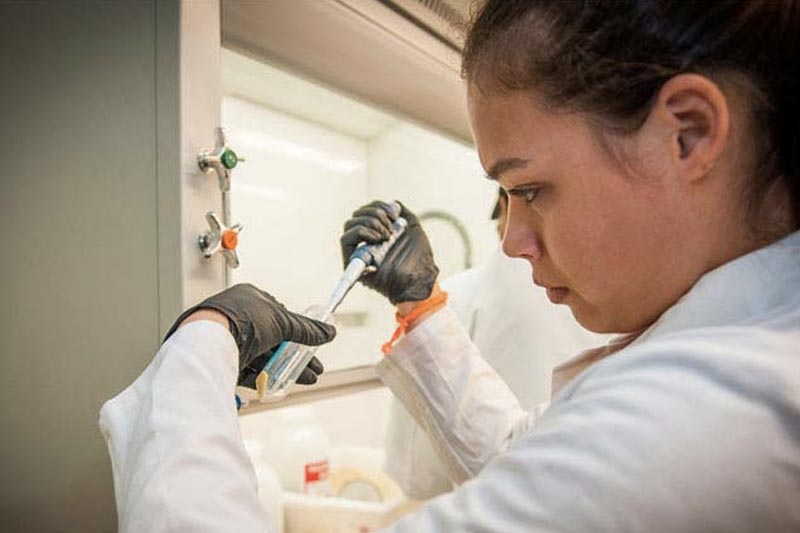
Professional Development
As part of StrongPoints, biology majors can take a course to build their strengths in their chosen career path. Students explore career options, learn how to present themselves professionally, and make industry connections. Learn more about our StrongPoints program.

As a biology and psychology major, Alyshena Case, ’24, adopted a growth mindset which improved her confidence and prepared her for the future. Through her research experiences at Meredith, she has learned to believe in herself when faced with a challenge.

Legacy Scholar and Honors student Ally Cefalu, ’22, double majored in biology and psychology, became a Student Assistant, conducted lab research, and formed a strong bond with the Meredith community. After graduating from Meredith, she took her passion for biology and mental health to work as an Analyst I at BioAgilytix.

After Spanish and biology major Cinthia Arreola, ‘21, took a course in Spanish translation during her junior year, she found new ways to support her community.
Videos about Meredith's Biology Program
Health Professions Advising
Meredith students interested in going into the healthcare field have the unique opportunity to be a part of the Health Professions Advising Program which provides a structured but personalized approach to advising.
Strong Story | Tia Joyce
Tia Joyce, ’16, a Legacy Scholar, earned majors in chemistry, biology, and psychology, while at Meredith College. Thanks to support from a strong set of faculty mentors, Tia is well-prepared for her next challenge – attending dental school.
What is in a scientific name?
Assistant Professor of Biological Sciences Maria Pickering explains the purpose of scientific names, how animals get their scientific names, and why these names matter.
Biology News
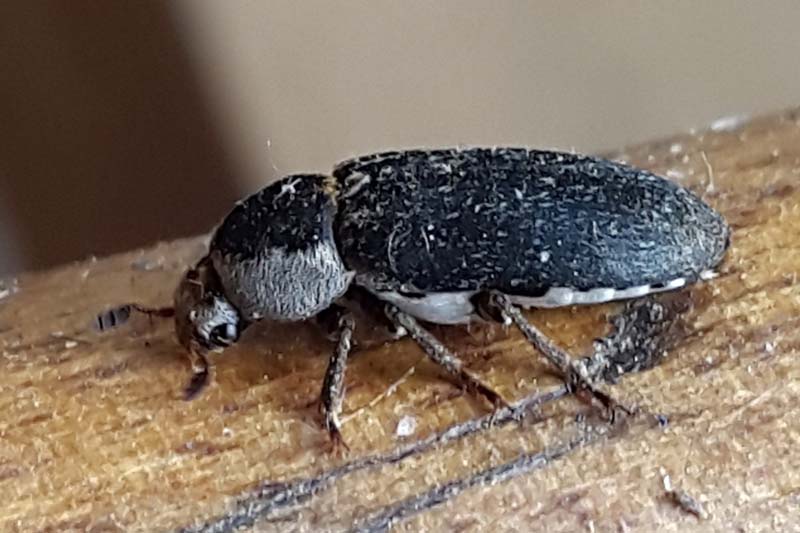
Caroline Klein, ’24, presented at the North Carolina Academy of Science’s 120th Annual Meeting held April 5-6 at Winston-Salem University.

Three Meredith scholars who were awarded the College’s highest academic honor, the Full-Ride Merit Scholarship, were celebrated on Friday, April 19, 2024, as they prepare to graduate.
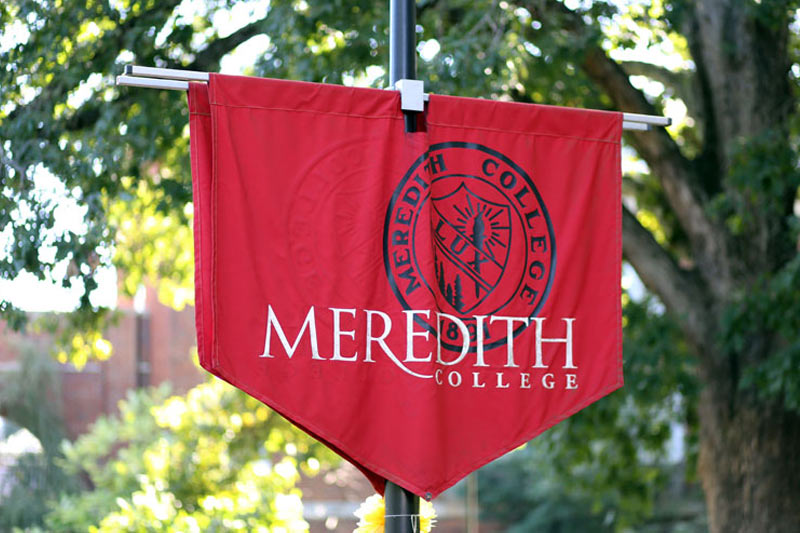
Sixteen Meredith College student researchers presented their work at the State of North Carolina Undergraduate Research and Creativity Symposium (SNCURCS).

Meredith students sought to correct gender bias on Wikipedia by nominating pages for women scientists.
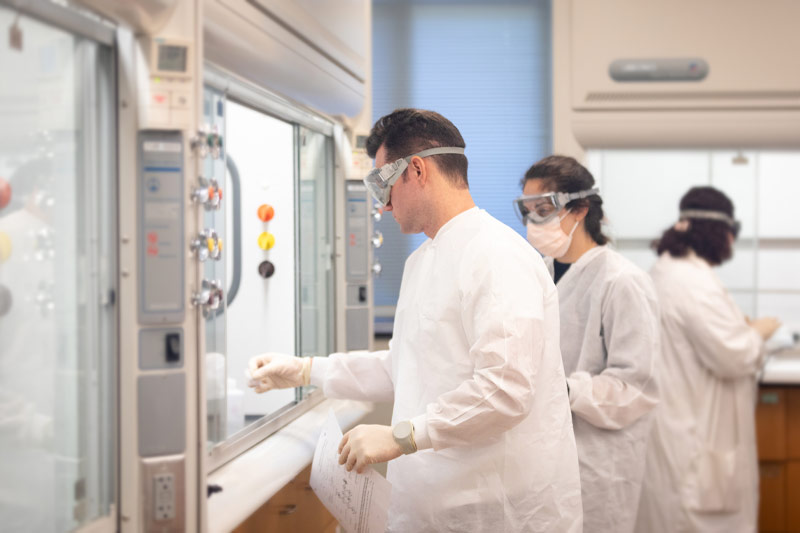
Meredith College is launching a new Master of Arts in Biomedical Sciences (MABMS) program, with students entering in the fall of 2024. The program’s focus is two-fold. It will enhance students’ academic qualifications for admission to a health professional school. It can also help students who are pursuing careers in the healthcare industry, particularly those who require a master’s degree to advance professionally.
Contact Information
Jason Andrus
Head, Dept. of Biological Sciences
103 Science/Mathematics Bldg.
(919) 760-8891
andrusja@meredith.edu
Biological Sciences Department »
School of Natural & Mathematical Sciences »


